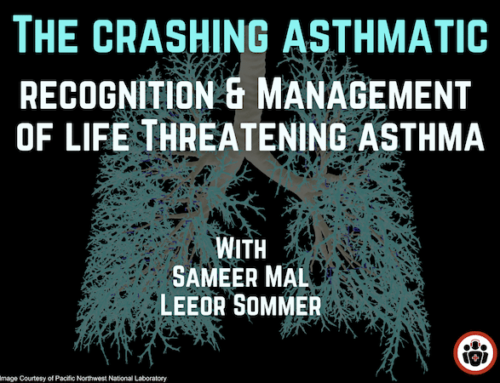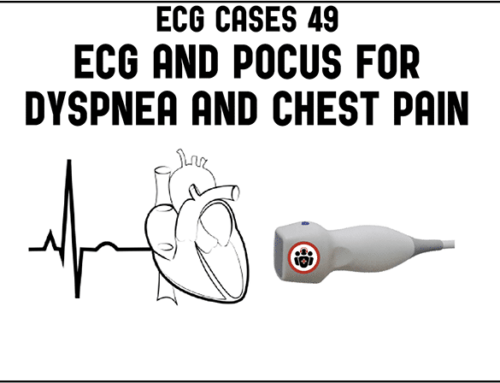In anticipation of our series of podcasts on Diagnostic Decision Making with Dr. Walter Himmel, Dr. Chris Hicks and Dr. David Dushenski we have Dr. Hicks presenting his Best Case Ever. Taking action in Emergency Medicine requires not only careful consideration of the best evidence, the expertise of the clinician, the patient’s values and the system that you work in, but also the will to act. Dr. Hicks describes a case of a patient who suffers a cardiac arrest, where the diagnosis is quite obvious to everyone in the room (and the required action is as well), yet a delay in treatment occurs nonetheless.
In the upcoming episodes on Diagnostic Decision Making we discuss:
- the intersection between evidence-based medicine, cognitive decision making and systems issues
- how the 3 spheres of EBM – the best evidence , the clinician’s expertise and the patient’s values, enter into diagnostic decision making
- the cognitive biases we need to be aware of in diagnostic decision making
- a discussion on the evolution and geographic variation of risk tolerance in EM
- the true meaning of shared decision making as it applies to testing in the ED
- the systems and individual factors that contribute to over-investigating as well as strategies to prevent it
Published April 2015
Dr. Helman and Dr. Hicks have no conflicts of interest to declare





Great podcast! As am getting more senior I am realizing how gray (vs black and white) most clinical decisions really are.
One thing, it was mentioned that one has to know the pre-test probabilities…something I find we are not taught how to come up with. Suggestions on how to learn this skill?
Thanks for you comment. The CMAJ article from 1985 that we have posted link to on Episode 62 Diagnostic Decision Making Part 1 is a short description of how to assess for pre-test probabilities.